5 things you should never put in your garden waste bin to avoid fines
Are you gambling with your garden waste? Reconsider dumping these common things, or you may be fined

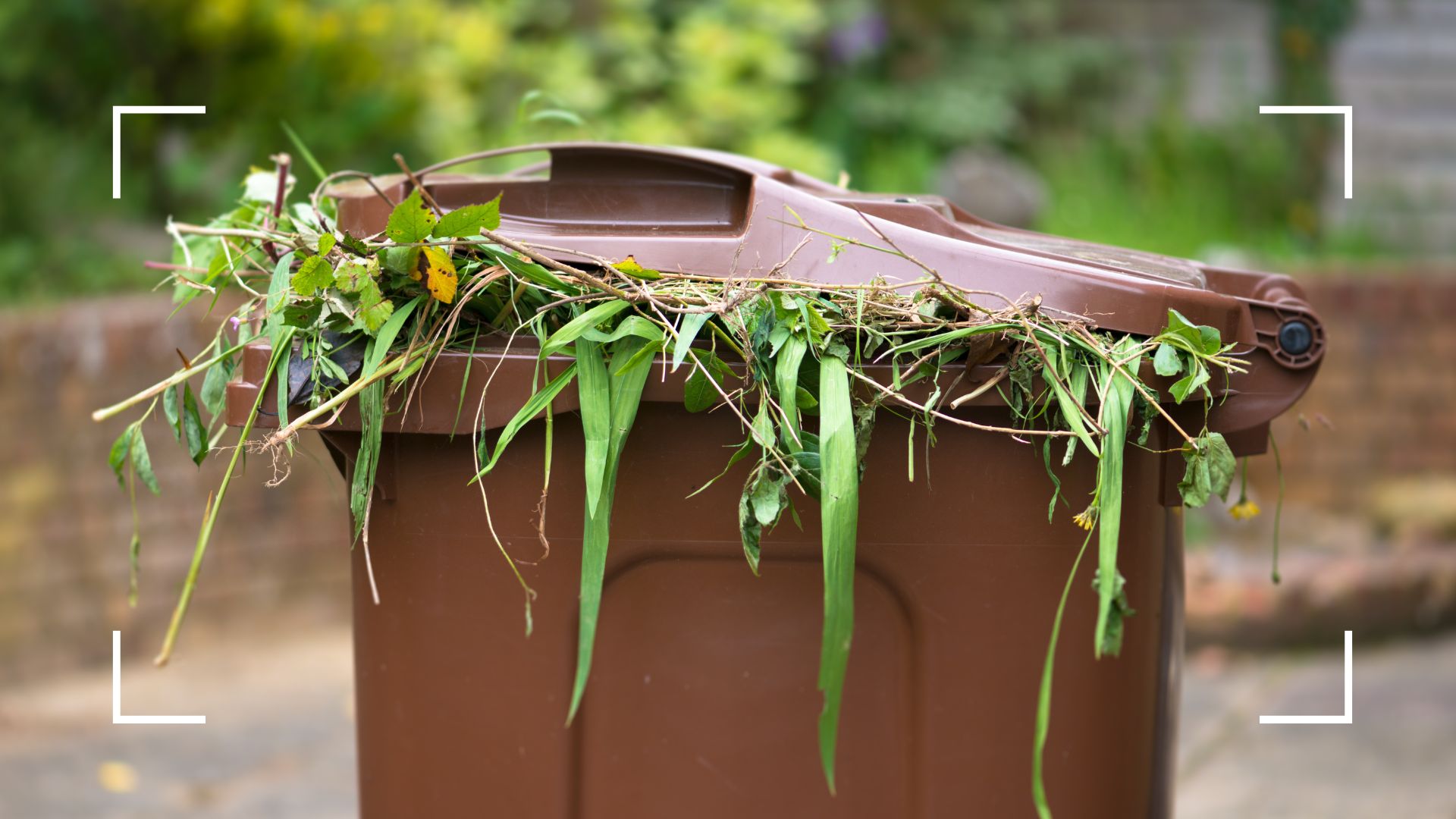
Whilst you may think your garden waste bin is a catch-all for anything organic or natural, some unsuspecting items should never be put in there. So much so that you can receive pretty hefty fines for getting it wrong.
If you fancy yourself a professional gardener, you'll know there are some things you should never put in your compost heap. Although some garden waste may seem pretty harmless in the same way, it can damage your compost, it can lead to you being fined if thrown in your garden waste bin.
In fact, you can be fined up to £5,000 for certain items, so with that in mind, we spoke to waste experts for help on deciphering what's okay and what isn't.
Things you should never put in your garden waste bin
Although the information on what you can and can't put in your bins is available on your council's website via www.gov.uk, it can be really confusing when you're throwing away specific items. Especially when it comes to garden waste, which seems to have more pitfalls than any other type.
So if you're wanting to avoid a summer gardening mistake with your garden waste bin, here's what NOT to throw in there.
1. Soil
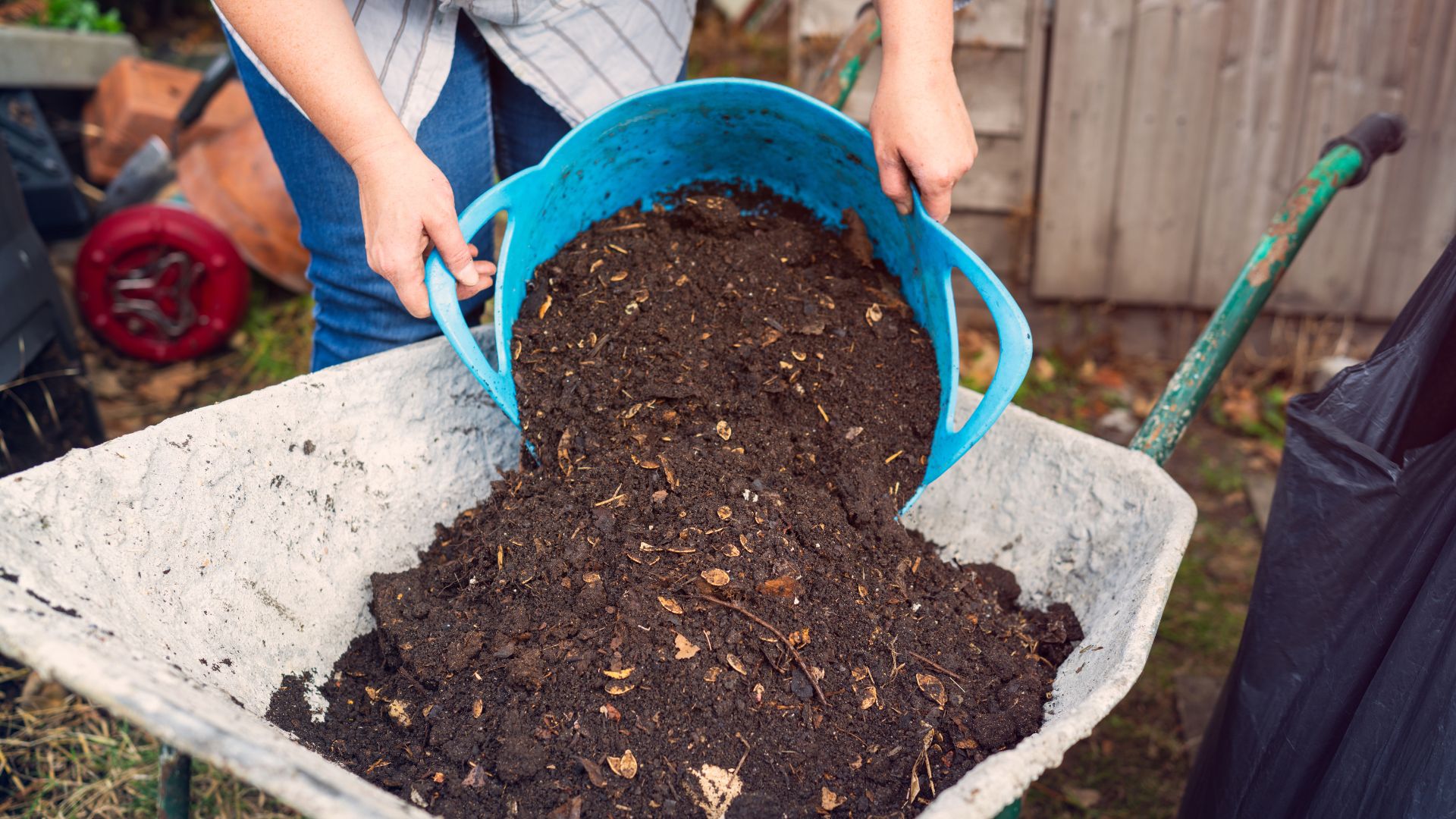
It doesn't matter what your soil type is; soil of any kind should never be disposed of in your garden waste bin.
Graham Matthews, waste expert at Business Waste, explains, "Most councils will not allow you to add any soil to your garden waste bin as it doesn’t decompose in the same way most plant material does."
Sign up to our free daily email for the latest royal and entertainment news, interesting opinion, expert advice on styling and beauty trends, and no-nonsense guides to the health and wellness questions you want answered.
He also points out that large amounts of soil can be heavy, making collecting the bin a real challenge.
"It can make it difficult for workers to load, can exceed the weight limits on vehicles, and also lead to wear and tear on equipment," he adds.
For smaller amounts of soil, simply add it to your homemade compost heap. And for larger quantities, you'll have to call a specialist removal service or take it to your local household waste recycling centre.

Graham provides his advice and expertise on topics across the waste and recycling sectors. These cover industry-specific waste disposal issues, legislation and compliance news, and educational guidance around waste management.
2. Animal waste
Whether you have a house full of pets or have been trying to get rid of foxes in your garden, you may have a lot of animal waste on your property. Your garden waste bin is not the place to dispose of it.
"Animal waste poses a health and safety risk. It can contain harmful diseases that present risks to plants, animals, and humans. Alongside this, animal waste requires a different composting process from normal garden waste, with higher temperatures needed to eradicate any bacteria," explains Graham.
3. Invasive, non-native plant species
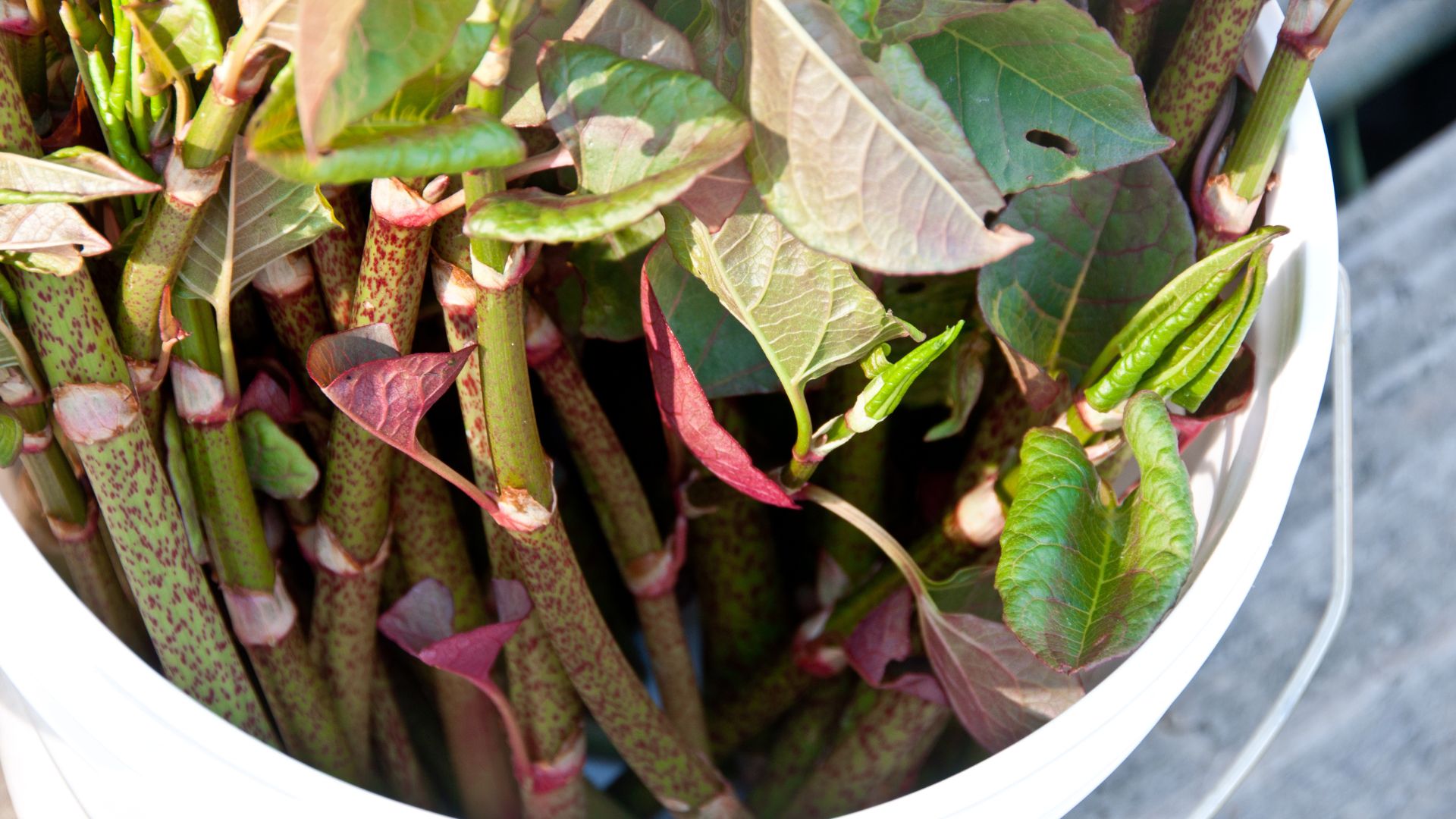
If you've ever found invasive plant species in your garden, you'll know that getting rid of them as soon as possible is key. And while they are technically organic matter, they're not suitable for your garden waste bin.
"The fines for improperly disposing of these plants can soar to a huge £5,000 for individuals, and £20,000 for companies. In extreme cases, you could even be prosecuted for environmental harm," warns Graham.
"If you find yourself needing to dispose of any invasive species, it’s vital to check online for the proper procedure, which may require using a licensed waste carrier," he adds.
4. Food waste
If you have a problem with rats coming into your garden, or if you've spotted more flies in your home than usual, it could be because of the way you're disposing of your food waste.
Graham says, "Food waste can attract pests and vermin, meaning you should never put it into your garden waste bin. The composition of food scraps also means they interfere with the microbial balance in compost, affecting quality and speed."
He continues, "Putting any of the above materials in your garden waste bin at home is considered contamination. For the first instance, most councils will issue a warning, but repeat offences can be fined up to £100. If you continue to ignore this, the council will likely suspend your service altogether."
Your council might offer a food waste caddy; you can use this instead. If not, you can dispose of it on your homemade compost heap or as an alternative, just use your general waste bin.
5. Plastic garden waste
As much as you might try using sustainable garden ideas, there's always a little plastic waste that comes when gardening. Although these plastics are technically from the garden, they're still not appropriate for the garden waste bin.
“Plastic items are a complete no-go. That includes plant pots, plastic labels, and seed trays. Some people confuse garden waste with ALL garden waste, including their broken plant pots," explains James Ewen, gardening expert at Green Feathers.
He adds, "They don’t break down and can spoil entire batches of compost, which is, of course, not sustainable. The same applies to rubble, or stones - they’re too heavy, can damage the composting equipment, and they don’t decompose."
FAQs
Can you put banana skins in a garden waste bin?
Although bananas can be a great help in your garden and are, of course, all-natural, they are still classified as food waste.
"Most councils have separate systems for food and garden waste, and mixing the two can cause issues. Putting a banana skin in the green bin could contaminate the whole load, leading to it being rejected and possibly sent to landfill, which is far from ideal!" says James.
There's also the matter of pests. A rotting banana can attract unwelcome guests into your garden and make disposing of the waste even more challenging. We'd recommend popping the banana peels in your compost or using them to make banana tea for your plants.
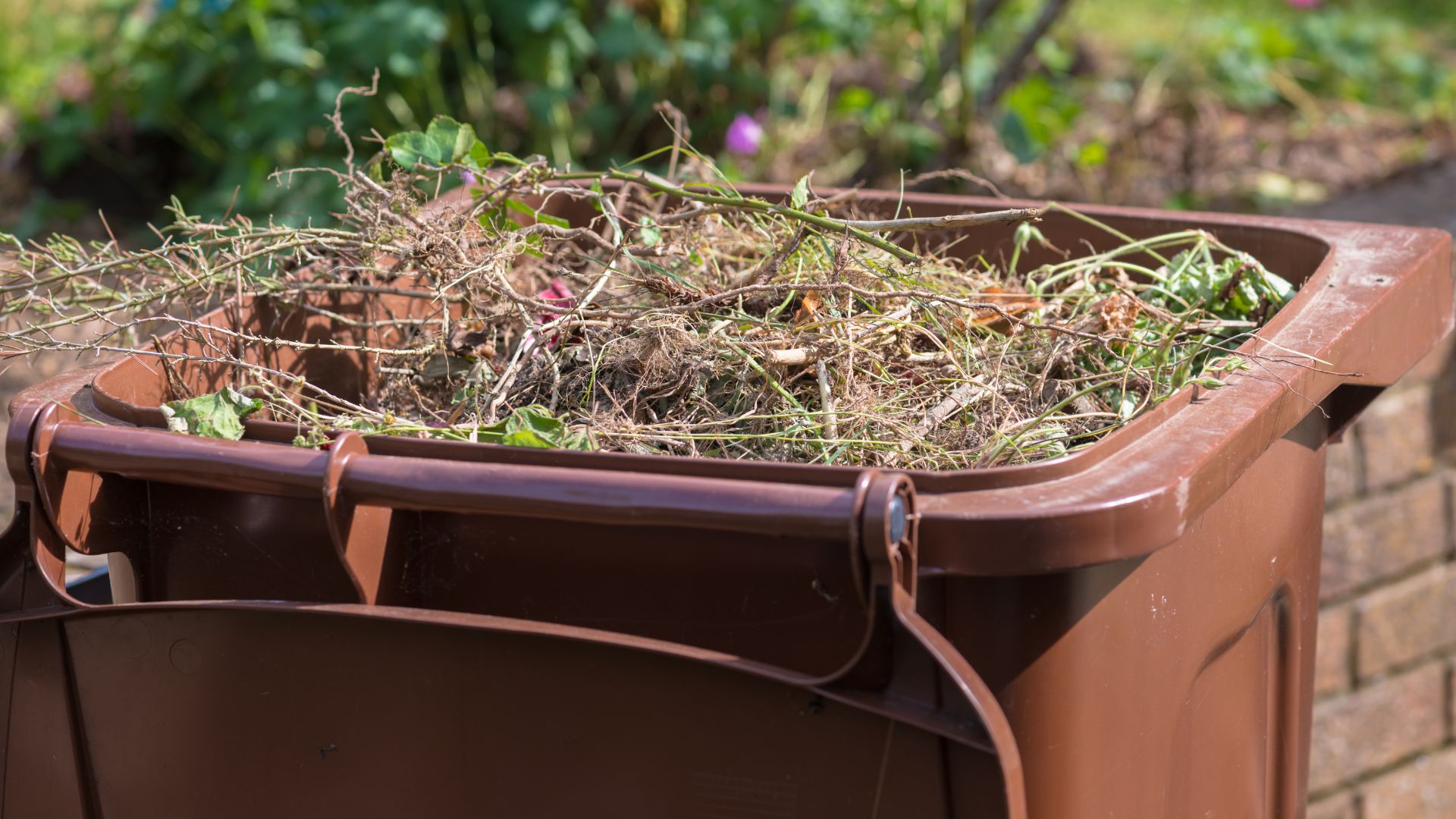
Can I put sand in my garden waste bin?
It can be all too easy when you're sorting your garden out to throw things in the garden waste bin. Sand and rubble will usually be included in this.
"Sand is definitely not welcome in the garden waste bin," says James. "It might seem harmless enough, but it’s not organic, which means it won’t break down or decompose like grass or leaves do."
He explains that disposing of sand this way can actually clog up the machines at the composting facility. So, as an alternative, why not try reusing the sand to help improve soil drainage?
Shop garden waste alternatives
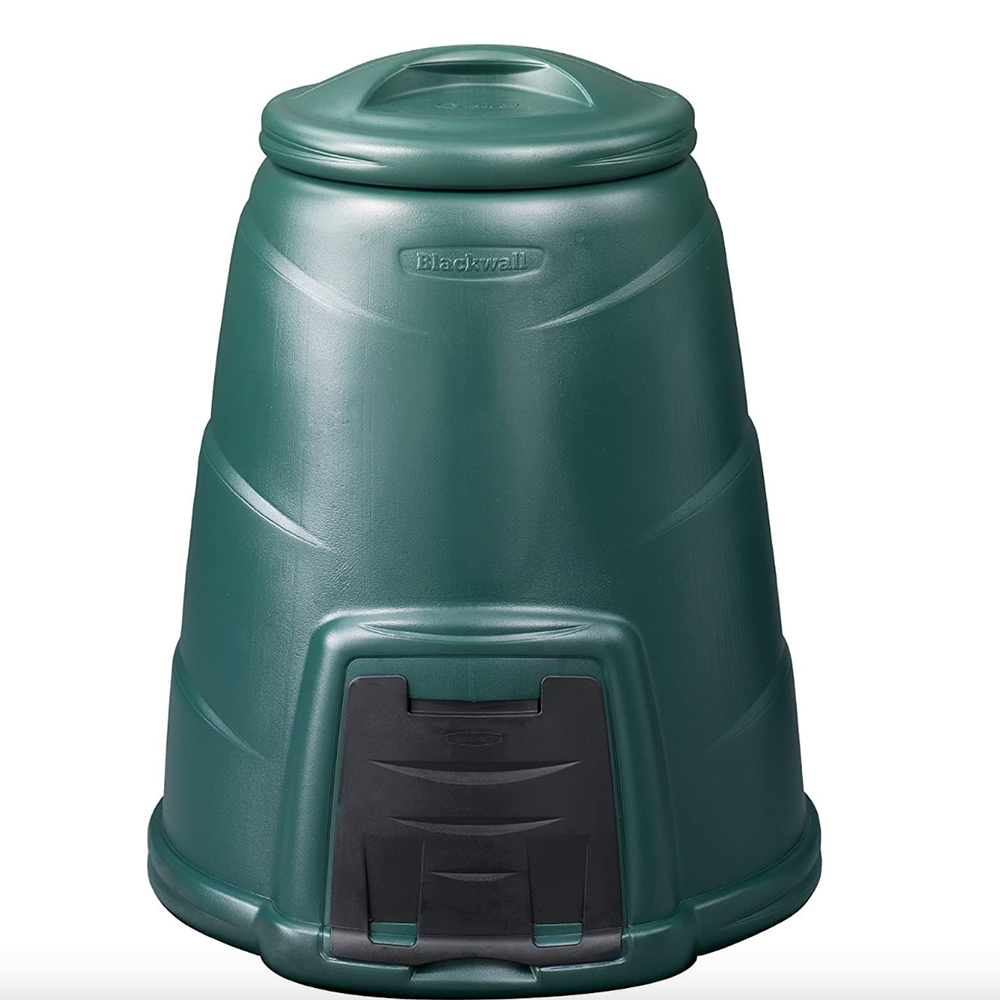
RRP: £54.99 | This generous bin is a popular choice of design for those looking for a bin solution to hide the compost out of sight. With a waterproof lid and easy access hatch, this design is highly practical.
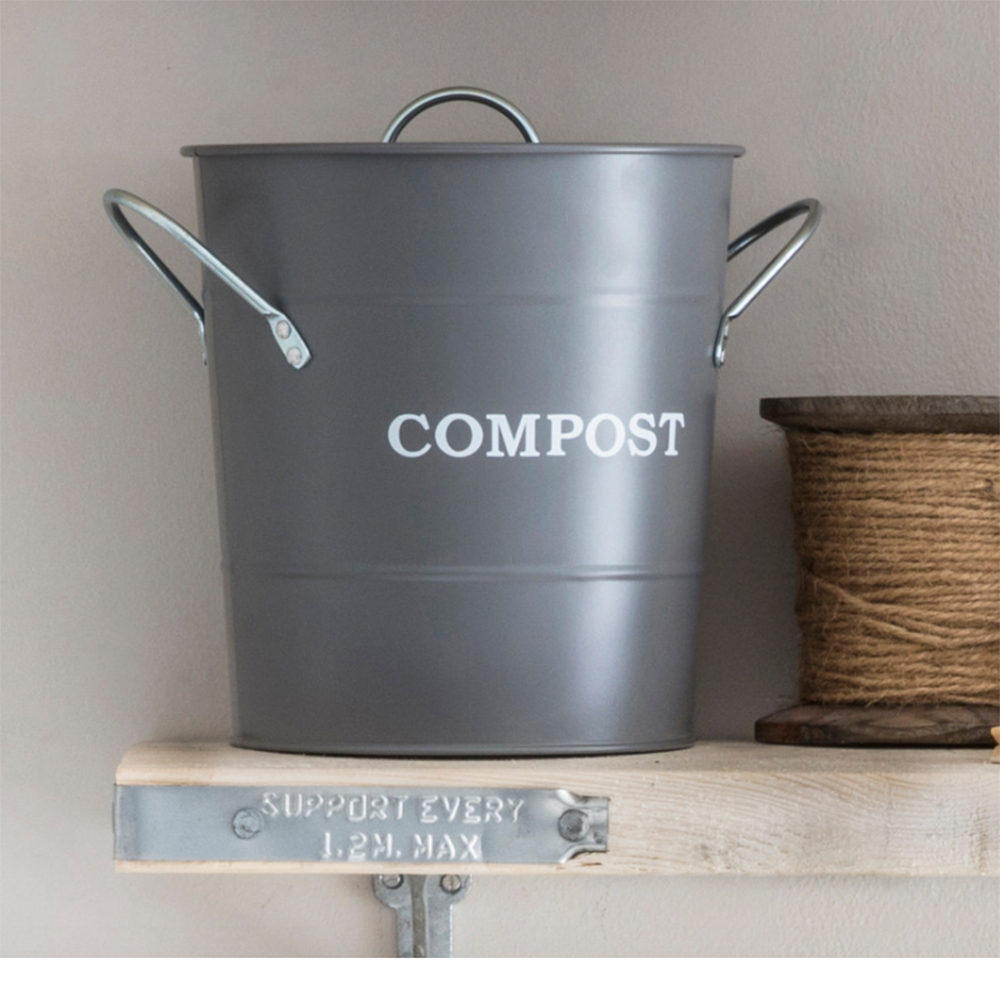
RRP: £22 | This stylish charcoal-coloured compost caddy is the chic way to collect your indoor food waste, to keep it separate from your other non-compost waste.
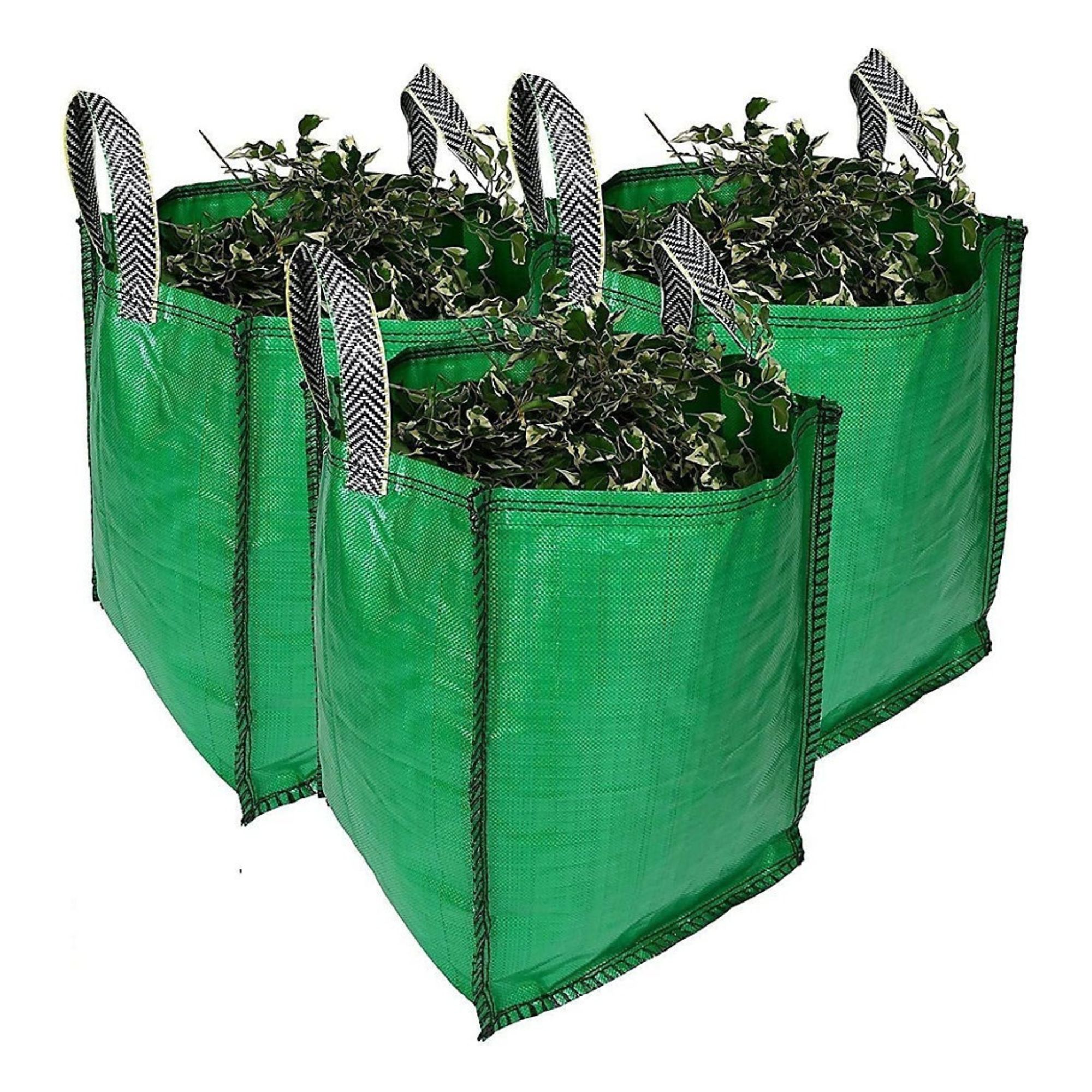
RRP: £12.99 | If you're garden waste bin isn't meeting your size needs then these bags are a great alternative. They're lightweight and sturdy making them perfect for taking around the garden to fill up with branches and grass.
The next time you're transforming your garden on a budget, be sure to double-check what it is you're throwing out. Or you'll be spending more than you bargained for with council fines.

Emily joined woman&home as a staff writer after finishing her MA in Magazine Journalism from City University in 2023. After writing various health and news content, she now specialises in lifestyle, covering unique cleaning hacks, gardening how-tos, and everything to help your houseplants thrive.